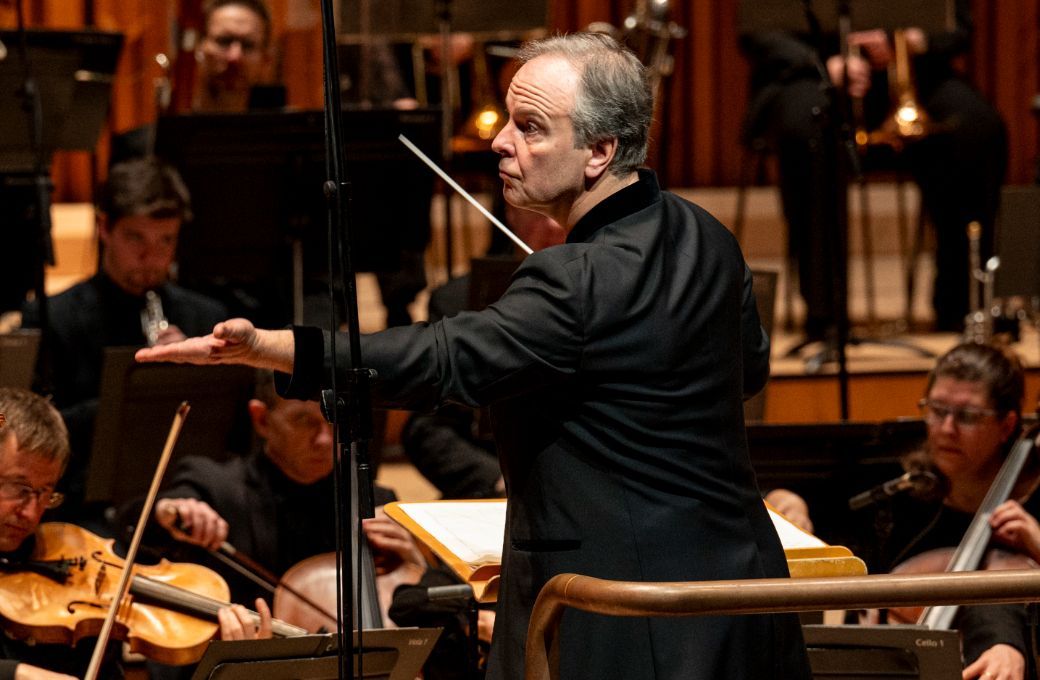This being London, Mahler symphonies are not really like buses at all, in that on the scale of concert schedules, they come around every five minutes. Even so, seeing the BBC Symphony Orchestra musicians cram themselves into every last corner of the Barbican stage for Mahler’s Sixth, it felt like no time at all since Rattle and the Bavarian Radio SO gave a remarkable performance of the piece at the tail-end of the BBC Proms.

A more salient comparison, though, would be with the Fifth Symphony of Bruckner, given a week earlier than Rattle’s Prom by the Berliner Philharmoniker and Kirill Petrenko. Sakari Oramo has never previously conducted Mahler’s Sixth; Petrenko had never touched Bruckner at all. Yet both conductors brought mastery and experience to bear on their musicians, as well as a winning freshness of insight.
Oramo’s track record in this repertoire includes intriguingly broad, forensically detailed accounts of Mahler’s Seventh and Strauss’ Alpine Symphony at the Proms. Anyone anticipating this Sixth would follow suit was in for a rude shock. Driving off very much at the energico end of Mahler’s Allegro for the first movement, Oramo found an unusual, even expressionist violence in the first subject, and a highly contrasted opulence in the second – like placing canvases of Kandinsky and Klimt side by side, and letting the viewer make sense of it all.
Dispensing with the usual exposition repeat as left luggage on the carousel of symphonic form, Oramo sharpened the profile of the Sixth as a work living in the here and now, as well as the there and then of 1905. The shadow of mortality often hangs over the piece from the outset: not here. Rather, Oramo staged it as one of those tragedies – perhaps the greatest ones, like Antigone or Othello – where the outcome could hardly be predicted from the outset, and is attendant on events.
In this sense, his Sixth made a provocative and compelling antipode to the trajectory of Mahler’s Second, where the resurrection light burns brightest when it emerges from long and unfathomable darkness. Having generated triumphant momentum in the first movement’s coda, it made sense for Oramo to plunge into the symphony’s Scherzo rather than to stop and admire the flowers of the Andante, as Rattle does.
Even in so primary-coloured a performance, however, some half-tints would have been welcome. Both on the Barbican stage and off, the cowbells clanked away unmercifully: not so much pasturing cattle in the meadow as an accident in a dairy factory. The BBCSO string section under Oramo is now the equal of any in the UK, and he coaxed from them an affecting simplicity in the Andante, as well as a correspondence with the Adagietto of the Fifth, underlining the nature of each Mahler symphony as the latest chapter in an unfolding roman à clef.
Rattle’s latest (and last?) Sixth felt like a live autopsy, blood and guts flying everywhere. You could hear every note, if you cared to, even when the BRSO were going hammer and tongs in the finale. By contrast, perhaps two-thirds of the finale’s frenetic polyphony was audible under Oramo, but it was the two-thirds that count. He made particularly logical sense of the counterpoint after the first hammer blow, which often comes over as the symphony’s weakest passage: another unexpected correspondence with Bruckner’s Fifth. Still more unexpected was the restitution of the now-unfashionable third hammer blow, which landed with all the greater impact, delaying a numbed sense of catastrophe until the last few bars.
Would Mahler have approved? Who can say for sure? He would surely have applauded Oramo’s sure grasp of the bigger picture, the skill and commitment of the BBCSO (trumpets as well as strings a highlight on the night), and the reverberating silence at the close.


